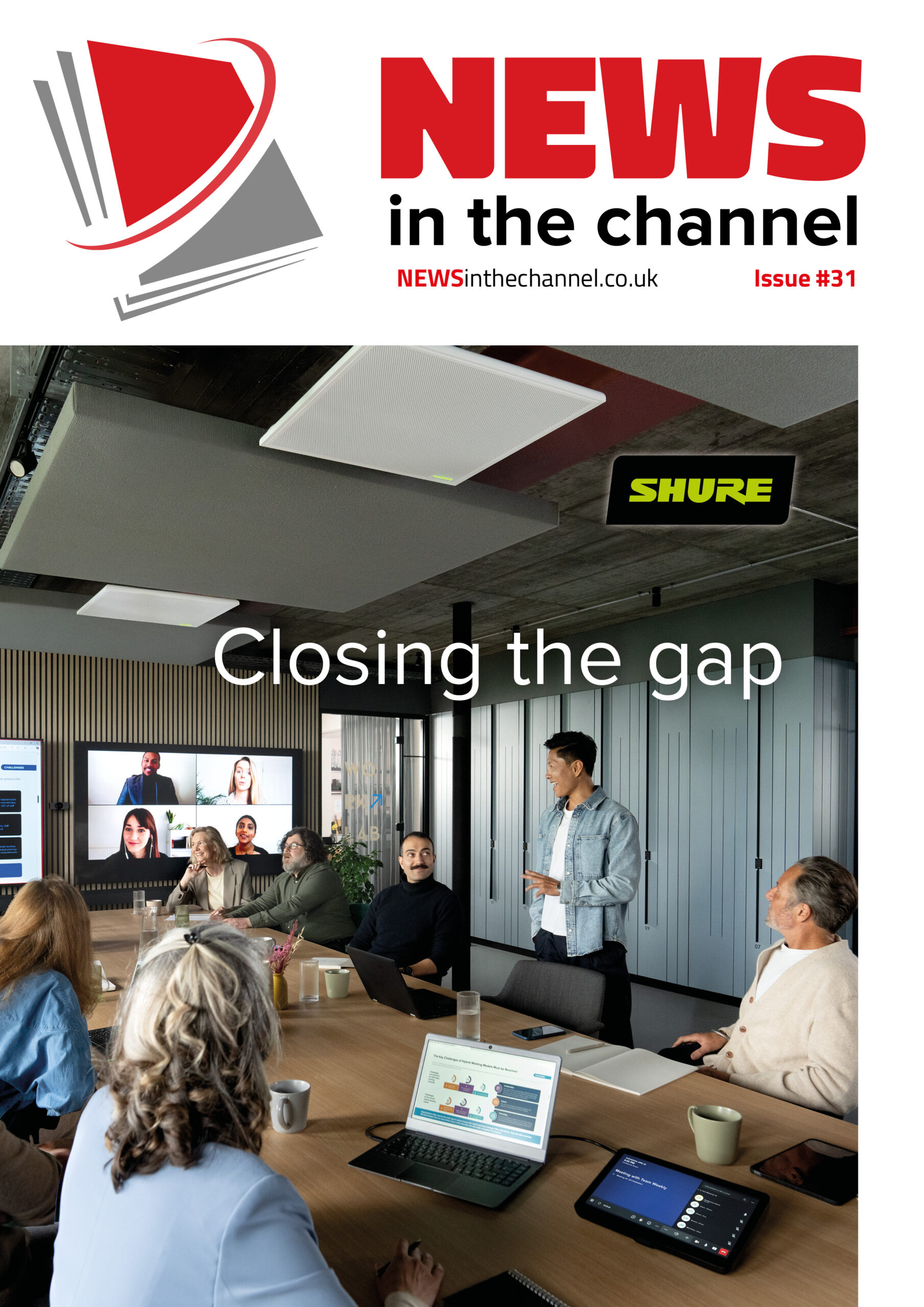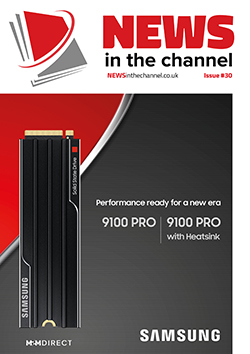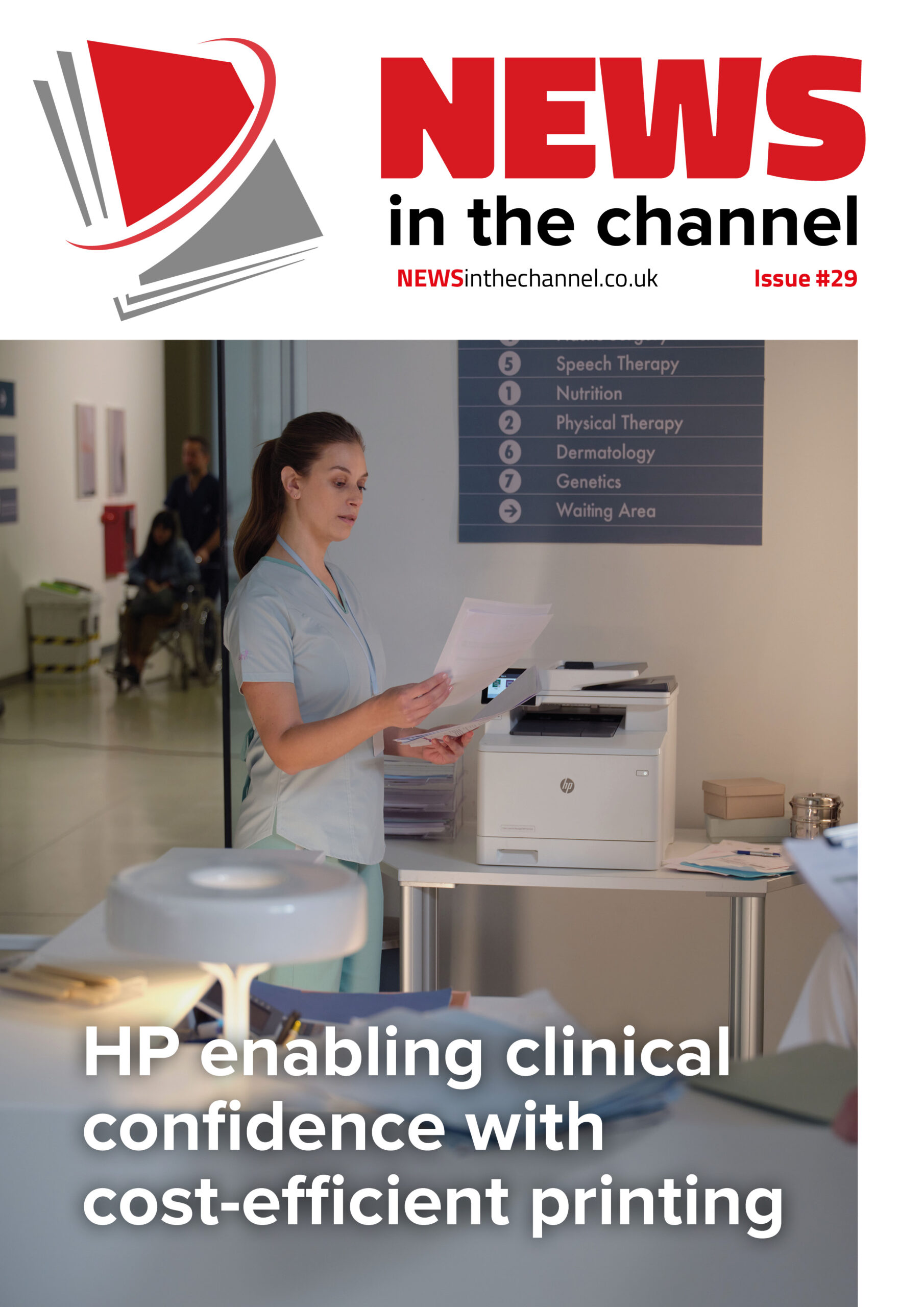While hybrid working is now an accepted part of the work landscape in many sectors, peripherals are still required and can be an important boost to revenues for resellers.
While there have been recent high-profile news stories of certain businesses ordering employees to return to the office five days a week, hybrid working is still a popular option with many businesses.
Employees enjoy the flexibility hybrid working brings, and it can help to attract employees to a business too.
Steve Carter, managing director of Advantia Business Solutions, says that the current situation where many employers have hybrid arrangements in place for employees is now normal. “But employers need to remember that they are still responsible for their employees’ desk set up at home,” he says.
This means that peripherals – from chairs to monitor arms – remain vitally important and something that resellers can tap into to boost their bottom line. Indeed, the overall peripherals market is currently worth £2.4 billion within the UK and the global sales are expected to continue expanding by 8.35%, reaching $87.2 billion by 2030.
“We’ve seen an increase in furniture sales, particularly with things like chairs and sit-stand desks as if that person suddenly starts getting neck ache or shoulder ache because of the way the desk is or isn’t set up, that comes back to the employer,” notes Steve.
Wellbeing
Mark Wilkinson, regional vice president – UK & Ireland, ACCO Brands EMEA, notes that wellbeing is important for employees, adding that ACCO predict employee wellbeing will become as important as sustainability and diversity to how companies behave. “It is also becoming a mandate with DSE Assessments & EU law specifying a ‘duty of care’ with ‘necessary measures’ to ensure employee safety,” he says. “This is a key topic for supporting sales growth in this area that resellers should embrace.
“You could say hybrid working is a response to wellbeing with workers demanding company cultures that support their physical and mental wellbeing.
“This trend translates into an increased demand for products that support workers physical wellbeing, with ergonomic products, such as personal sit stand desks, wellness balls and ergonomic mice seeing good sales growth. The whole ethos of our Leitz Ergo range, for example, is to support healthy working habits by providing tools that allow workers to sit, stand and move, helping them stay healthy and productive throughout the day.
“It is often said that sitting is the new smoking and likely as a follow on from this, one of our most successful products from our Leitz Ergo range has been the Leitz Ergo Active Sit-Stand stool, which promotes micro movement throughout your working day, as well as supporting seated and standing working helping to prevent back pain. Movement is key to reducing all manner of work-related ailments.”
Better working environment
But it isn’t just about physical wellbeing, it’s about how equipment fits into a home workspace too, says David Huggins, national account manager IT – UK & IRL – at Fellowes. He added that a key finding from Fellowes commissioned research into the ‘New Way of Working’ was that three quarters of respondents felt that a better home working environment would help them feel more motivated and productive.
“The most desired items that can contribute to a better working environment, particularly for those spending more time working from home, are those that can easily blend into and complement the home environment, whether this be through desirable design language or the ease of packing away, for those that don’t have a ‘dedicated’ permanent workspace in their home,” he says.
“We have seen an increase in demand for the Breyta™ range of portable ergonomic accessories which includes adjustable laptop risers, monitor stands and foot supports, designed with the hybrid worker in mind.”
Changing demands
But as hybrid working has become more established in the past few years, so customers’ demands have changed.
“In the early days of hybrid working we saw a big rise in the sales of the basics – laptop riser, keyboards, mice – as people made do working from the sofa or kitchen table,” says Mark. “We ran a survey in 2023 as part of our ‘New World of Work’ whitepaper that revealed 36% of people working from home had only a couple of ergonomic items. Moving onto 2024 and we have seen a marked increase in the number of home workers looking for a more complete solution, seating, desks/desk converters, monitor arms to support dual screen working etc as they build a permanent home working set up.”
Mike Barron, managing director, SYNAXON UK, says the company has seen a lot of activity on peripherals through the SYNAXON Hub. “WiFi routers and access points, large-format displays, storage devices, audio headsets, keyboards and mice, and backup power supplies have all been popular,” he says.
Ross Turner, peripherals director, UK, TD SYNNEX, says that the most in-demand items are large format and medium-sized displays and keyboard and mouse combos that enable users to work effectively at home. “That’s a huge and perpetual area of activity,” he says.
Hybrid working has driven demand for equipment which enhances productivity. “With AI advancing in areas such as workflow scheduling, content creation and other communication tools, the industry is experiencing a shift towards virtual reality and augmented reality peripherals that offer enhanced wireless and ergonomic capabilities, alongside better integration for AI and IoT functionalities,” says Lawrence Savage, marketing manager at ExaClair.
Lawrence also points to a trend for people combining work and leisure time – so-called ‘workcations’ – is also influencing peripheral purchases. As employees look to take their work with them, they need appropriate kit.
“This has been reflected in an uptake in demand for our Exacompta laptop sleeves and luggage, which offer the user to ability transport and protect their work peripherals efficiently and safely,” Lawrence says.
Security
Peripherals involving storage and connectivity are also growing in popularity. Jon Fielding, managing director, EMEA, for Apricorn, notes that the market for removable storage devices is growing as hybrid workers need to move data between locations.
“Businesses are looking to provide solutions that ensure security and resilience is maintained when the employee is working remotely,” he says. “In that regard we are seeing companies researching, identifying and then mandating in policy – and quite often enforced in technology – hardware encrypted, removable media.
“This enables the employee to move data between the office and home securely while, at the same time, giving them a secure location to create their own local data backup which can be stored off-line when not in use to provide an element of self-reliance and resilience as part of a 3-2-1 data backup strategy – keep at least 3 copies of data on at least 2 different types of media with at least one copy offline and ideally encrypted.
“As more employees started to work outside of the security boundary of the internal network, there becomes a trade-off between facilitating and securing. What might be acceptable as a peripheral in the office might not be so at home – internet connected devices without any corporate controls that can access/process company data, for example.”
Wi-Fi solutions
Another peripheral that is gaining in traction is faster WiFi solutions and WiFi 7 especially, says Rachel Rothwell, senior regional director, UK and Ireland, Zyxel Networks. “Significantly, we are also seeing a lot for WiFi upgrades in the workplace, which underlines the point that, while yes, hybrid is here to stay, the workplace – where teams can come together and interact – remains the principal and most important focus for IT investment,” she says.
“We’ve also seen sales of 5G/LTE routers soaring over the past few months. These are being used in the home and in remote locations. With WiFi 7 and 5G/LTE, the technology really is there now and with the solutions we offer, customers can have enterprise-class performance at SMB prices.
“Cybersecurity has also been boosted by hybrid working. We’ve had a fantastic response to the release of our USG LITE 60AX unified security appliance, which provides built-in protection at the gateway and has an eco-friendly design, with 95% of the casing made from PCR plastic. It’s a WiFi 6 device but that will be good enough for most users and with VPN capability and the extra protection and flexibility it provides, it’s ideal for serious hybrid workers.
“Resellers need to impress upon customers that, if they really do want to be as effective working at home as they are in the office, then they need to invest in the right connectivity products, because without that speed and security, you just can’t get as much done.”
Overlooked
This is an important point – peripherals can help hybrid workers to be as productive as possible wherever they are and shouldn’t be overlooked by resellers when putting packages together for customers.
Jon agrees that peripherals can be overlooked. “Hybrid working revealed an untapped market that resellers had overlooked, partly due to the mistaken believe that storage would move wholeheartedly to the cloud,” he says. “Cloud can’t offer the same level of flexibility. In fact, that coupled with costs and concerns over data sovereignty is seeing something of a return to localised as well as remote storage, which is seeing demand grow.
“Storage needs to be a belt and braces approach, so that there are local copies and copies stored offline as well as in the cloud. That cloud-based storage can and should be supplemented by local storage because it provides peace of mind and enables the business to recover far more rapidly and return to BAU following a breach. That control over that data is becoming more of an issue due to companies no longer being able to control where their data is stored – earlier this year we heard Microsoft warn that it cannot guarantee data will remain on UK soil, for example. But ultimately, there should be a laser focus on ensuring anything a reseller proposes ticks two boxes – it helps the employee with their day-to-day work without compromising security.”
Mike agrees that many resellers probably don’t make enough of the potential to drive sales of peripherals sales for hybrid workers. “And maybe we could do more to highlight that opportunity ourselves,” he says. “I am sure that, given the right kind of focus, it would yield positive results.”
Mark adds that peripherals that boost wellbeing are an investment. “The average ROI on spend on occupational health is 200% plus,” he says. “A day of absence for the average worker costs c. £500 – £1000, wellbeing helps reduce sick days and avoid labour workforce shortage.
“Wellbeing is also linked to success: employees who feel physically and mentally well are more engaged and perform better in their roles.”
David adds that sometimes resellers need to remember that every item sold is an opportunity to upgrade to a package. “Such as including a monitor arm with a monitor, and likewise for a laptop, a laptop stand can increase the overall value of the basket,” he says.
“Resellers are best placed to maximise these opportunities when they are partnered with a reputable vendor that can support them in confidently communicating the broader benefits of these additional items.”
Reseller conversations
David adds that resellers should highlight the legal requirements in place to ensure staff are working healthily and productively wherever their work is based. “The nature of hybrid working means that employers now need to ensure that they are undertaking regular workstation risk assessments for home-based workers as well as office-based workers under EU Directive 90/270/EEC,” he says.
“Small investments in good quality ergonomic accessories that are built to last can pay high dividends in the long run, in terms of staff morale and productivity, wellbeing and levels of absenteeism – up to 8.9 million working days are lost annually due to work related musculoskeletal disorders.
“In a competitive market, it’s essential for resellers to communicate the benefits of investing in quality products that offer the right level of functionality for the end user. Ergonomics solutions with a minimum five-year warranty, that are independently tested to meet EU Health & Safety legislation help justify these purchases.”
Steve adds that resellers need to think differently. “For a reseller, if you accept the current situation is now normal, you’ve got to think a little bit cleverer in how you get to sell to those people and do something especially for them, because if they’re based at home, do you deliver to their home or do you arrange that a certain day a week, you’ll make deliveries into the office so people can come and pick their stuff up,” says Steve. “You just got to think a little bit differently.
“For example, a lot of our dealers are trained on how to set desks up. They can have a chat with the employer about that – perhaps they need help in making sure that their staff who are at home are kitted out correctly and have the desk set up correctly and they can help with that.”
Steve adds that while there was a trend a couple of years ago towards employees working from home buying more premium products, as hybrid arrangements have taken over, so the office has regained more control over what is bought. “The employer says there no need to get stuff on expenses anymore as there is plenty in the stationary cupboard and you can help yourself to whatever you need to take home, which maybe isn’t the branded stuff,” he says.
Ongoing demand
Demand for peripherals has been constant, and this looks likely to continue. “While the pandemic seems like an age ago now, a lot of businesses and hybrid workers are still fathoming out exactly how much time they want to spend working at home and remotely,” Ross adds. “That’s kept demand for peripherals products moving as has the ongoing updating and swapping out of equipment.
“Peripherals are definitely a good source of revenue potential for partners and all they really need to do is ask customers about their hybrid working needs. If you can delve a little deeper into the way that an organisation is trying to get the best from its hybrid workers – and the challenges of doing that – you can uncover all kinds of potential. Running a focused marketing campaign is also a good idea and we can provide partners with access to some good resources that will help them to do that.”











